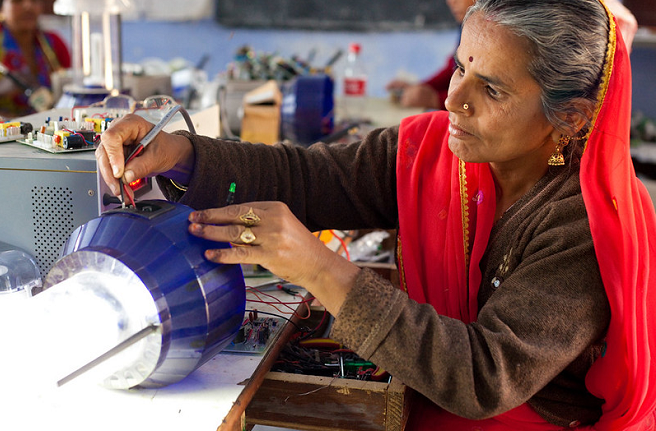What does the future hold for the international development sector?

We live in a rapidly changing and interconnected world. So, how should international development organisations respond to the world’s most pressing global challenges over the next decade?
Bond, the UK international development network, will soon be publishing a new report that aims to help development actors answer this vital question.
Increasing our international impact
Last year, we began exploring how to enhance the international reach of our work. We wanted to think through how we could contribute to the wider ambitions of the Foundation in seeking to address the UN’s sustainable development goals. Our research and consultation included an exploration of how different foundations work internationally.
As part of this journey, we are learning from the experts who are already working internationally. For this reason, we are supporting Bond with its work on strategy and innovation in the UK international development sector, as it supports a dynamic network of civil society organisations to eradicate global poverty, inequality, and injustice.
Time for change
Even before Covid-19 changed life as we know it, the international development system was experiencing a period of rapid change. Issues like climate breakdown, disease, and rising inequality needed attention more than ever. At the same time, the sector faced a range of pressing issues including the emergence of new technologies and falling support for aid. How could the sector ensure it was adequately prepared for the challenges and opportunities of the next decade?
Bond saw this changing landscape as a chance to accelerate progress in solving global challenges. It began work on a ‘sector diagnostic report’ to better understand the trends, challenges and innovations that were likely to impact the sector in the next decade. The findings would help development actors to remain effective in the years up to 2030.
Covid-19
When Bond was working on the report earlier this year, few could have foreseen that a pandemic was just around the corner. Covid-19 is undeniably a major risk to the international development sector, but it also presents moments of change. For example, the pandemic demands a local response and that means increasingly working with local partners and communities who have better knowledge and understanding of the local contexts. Bond has been incorporating a Covid-19 lens into its research.
Four transitions
In the report, Bond identifies four “transitions” that are likely to influence the international development system in the next ten years.
The four transitions are:
- Climate change and environmental degradation
- Redistribution of power
- Reinvented charity models
- New routes to development
Each transition includes key trends and considers innovations that could accelerate, or restrict, transformation in response. Based on these trends, Bond has identified risks and opportunities for the sector.
Climate change
Unsurprisingly, climate comes out as a key trend in the report. It is also a top concern for our Head Office, which has been increasing its focus on sustainable development and on climate change. Earlier this year, it launched the Gulbenkian Prize for Humanity, which recognises people or organisations worldwide that have stood to the fore in tackling the climate crisis.
We are now looking in detail at what we can do to support climate action. In the spirit of inquiry and collaboration, we are asking: ‘where can we most effectively act?’ We’ll be sharing more information on this process soon.
*The final report is due to be published in June*
